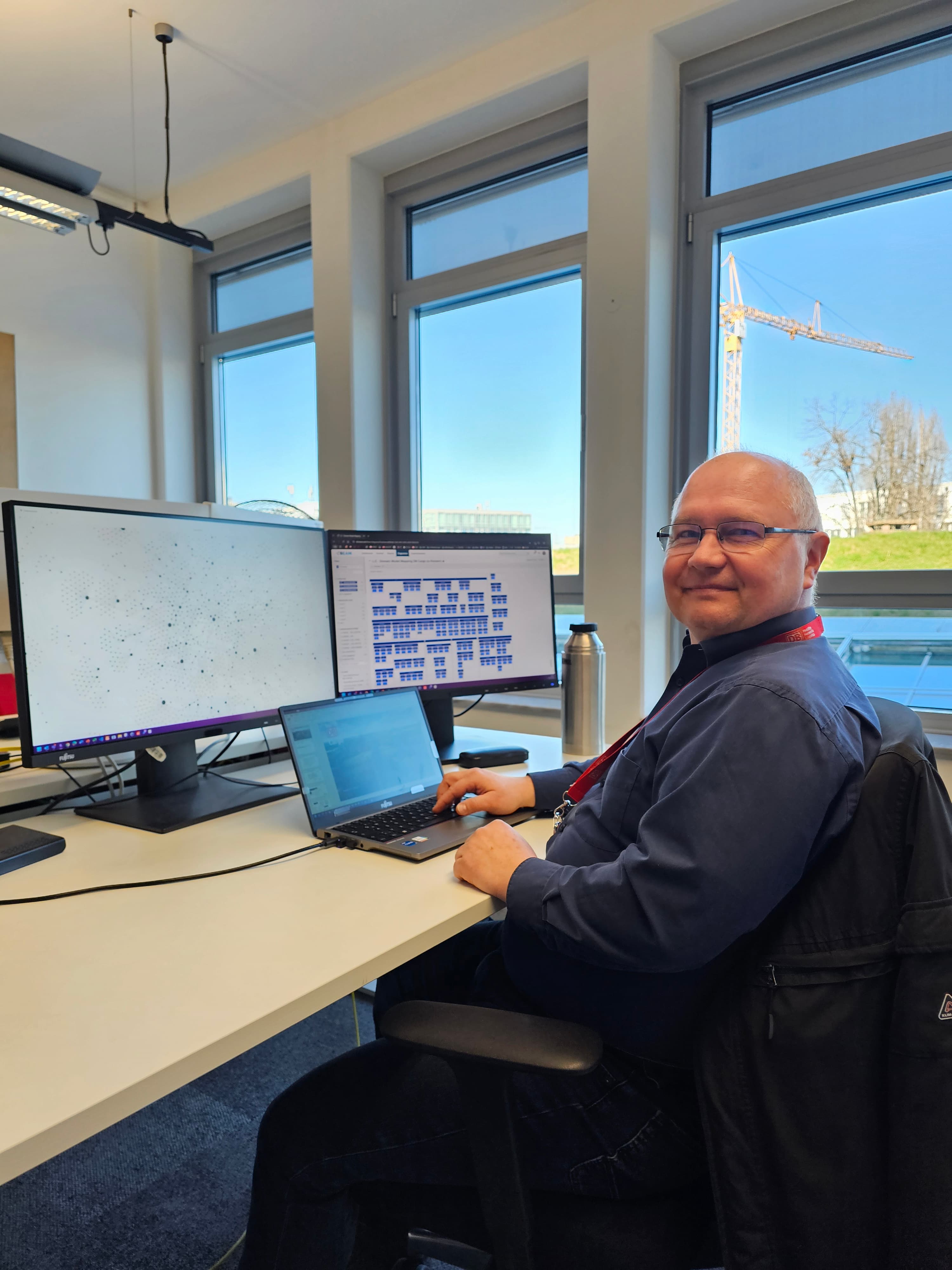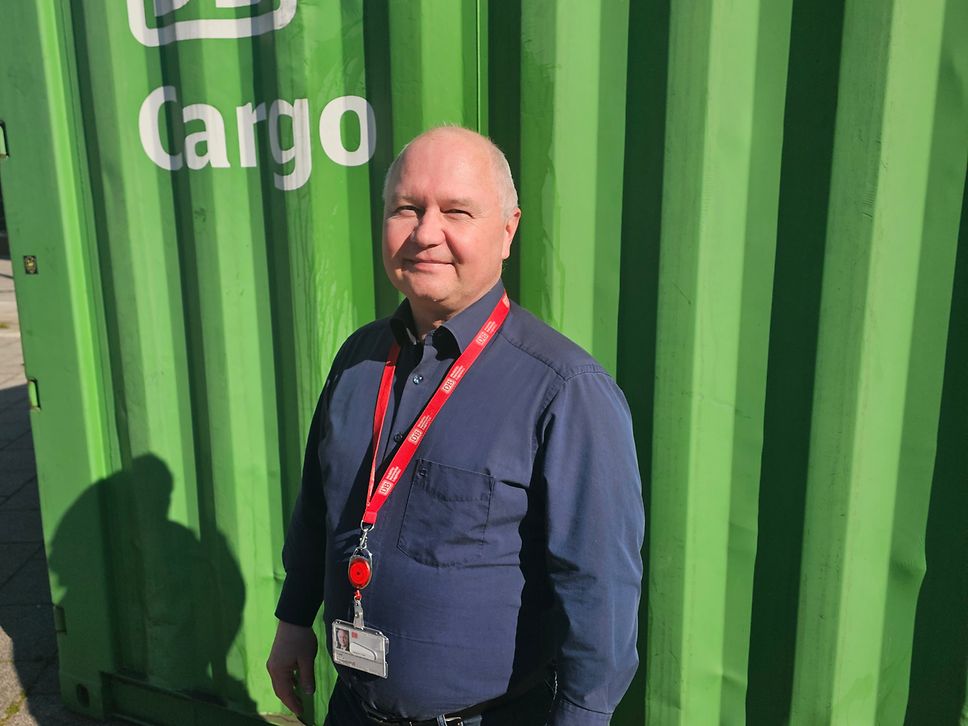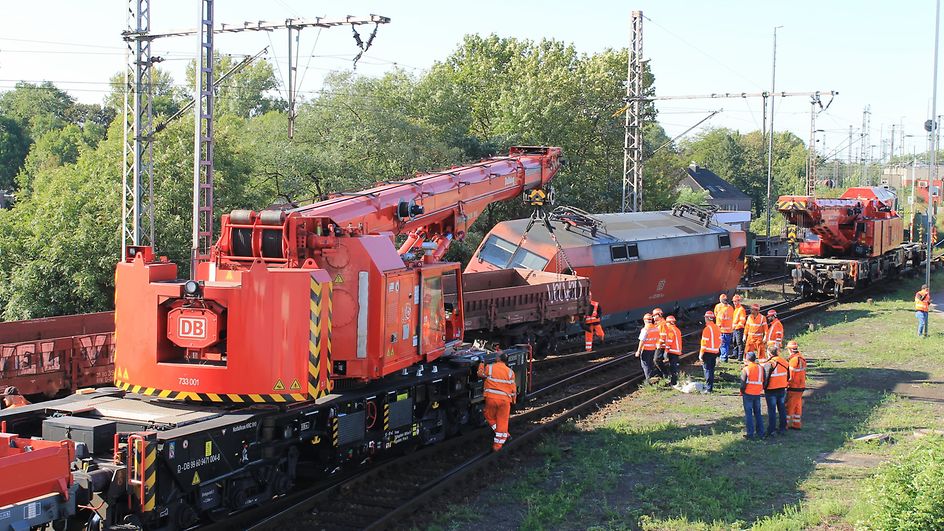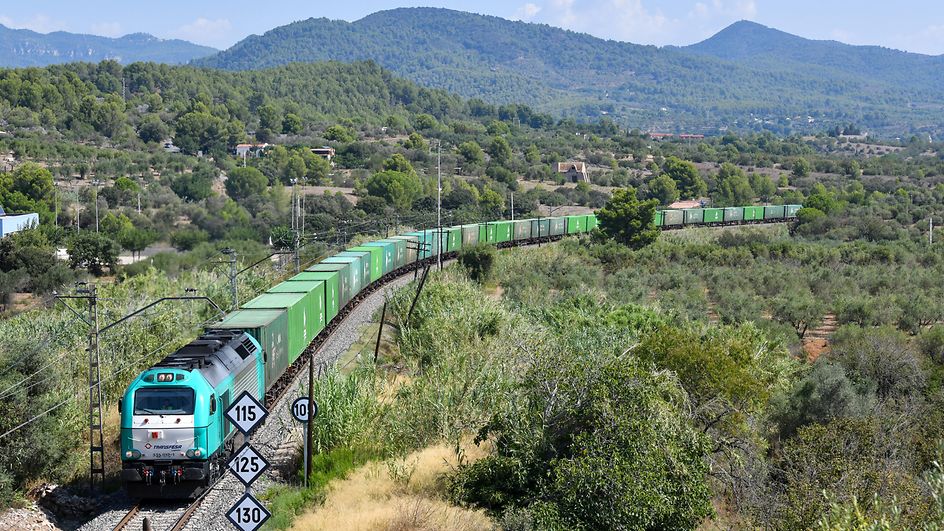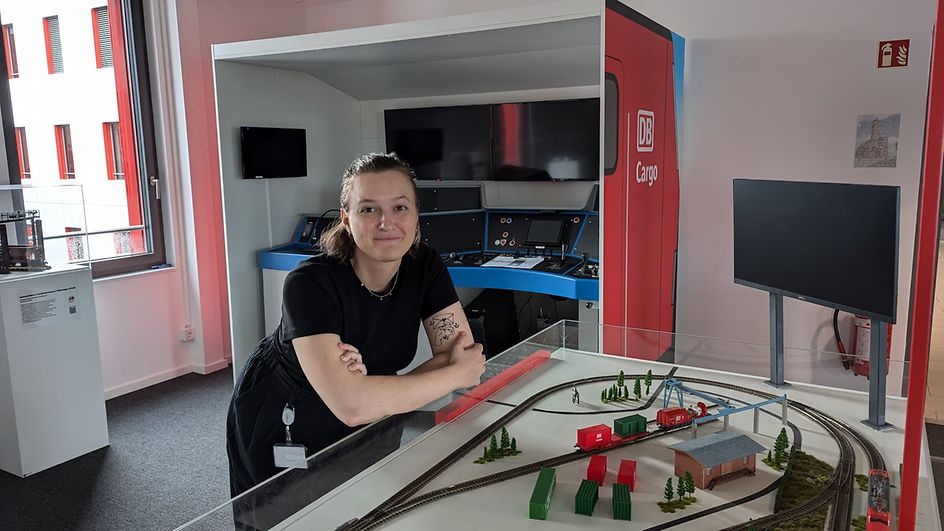Article: What does a cyber security architect / enterprise architect actually do at DB Cargo?
A look behind the scenes
The world is becoming more digital, faster and more connected - and the risk of cyberattacks is growing at the same time. Rail freight transport not only involves tons of goods, but also gigabytes of data that need to reach their destination securely. Frank Hofmann, Cyber Security Architect and Enterprise Architect at DB Cargo, designs the appropriate digital IT infrastructure for this.
Hofmann's work lays the foundation for effective operational protection against cyber threats together with the CISO team. The team is responsible for developing cyber security capabilities at DB Cargo, offering training and ensuring 24/7 security monitoring.
"You can think of my work like that of an urban planner," explains Frank Hofmann. "Instead of districts and streets, I plan IT landscapes that form the basis for efficient and secure data flows - ultimately so that our customers can enjoy the best possible service."
My job as a cyber security architect / enterprise architect
What exactly do I do? "I design secure and efficient IT landscapes that not only work today, but also in the future. It's not just about technology, but also about strategy and collaboration."
Why is my job important? "Our customers entrust us with their data as well as their goods. Protecting this trust is a great responsibility. IT security is not just a technical issue, but a decisive success factor."
What excites me about my work?
Combining strategy and technology: "I love developing long-term visions and then seeing them become reality."
Teamwork: "Cyber security is a team sport. We develop the best solutions together with colleagues from different areas."
Promoting young talent: "Since 2019, I have mentored over 16 trainees. It's great to see how they grow into their roles."
A project I am proud of: "The Security Development Lifecycle (SDLC) that we have developed ensures that security requirements are integrated into projects from the outset. This is a significant advantage for us."
My tip for anyone who wants to get started in this field: :"Just do it! There are many certificates and training opportunities to get you started - but curiosity, perseverance and technical understanding are key. Patience, openness and a good network are essential." Certificates such as CISM (Certified Information Security Manager) or CISSP (Certified Information Systems Security Professional) are among the world's highest accolades in the field of information security - I'm a little proud of that.
Profile: Frank Hofmann
How I came to DB Cargo: "As a computer scientist with a penchant for the big picture, I made a conscious decision to join DB Cargo in 2019. Here I have the opportunity to shape IT and business in a sustainable way - a perfect combination."
That's what I particularly like about my job: "I can develop long-term visions and then see them become reality over the years. I am particularly proud when customers realize that we make their business easier with our solutions."
My good tip: "Sometimes you realize that even small things can help immensely: A good cup of tea and a constantly growing knowledge database are my most important tools in everyday life! And, of course, a great team."
The challenges of everyday life between strategy and security
For Frank, a typical day consists of a mixture of strategic thinking, problem solving and teamwork."Our customers want two things above all: ease of use and protection of their data. To achieve this, I develop security measures that are integrated into projects at an early stage. Security is not just a feature, but part of the entire life cycle of IT systems."
A good example of this is the Security Development Lifecycle (SDLC), which Frank developed together with colleagues. This concept ensures that security requirements are not only considered at the end of a project, but from start to finish. "This cultural change was a challenge, but extremely important in order to create planning certainty and sustainable security."
In addition to such large-scale projects, Frank also oversees the introduction of technologies such as multi-factor authentication. "It ensures that our customers can access our portals securely. It is a great confirmation when such solutions not only work smoothly, but are also appreciated."
Teamwork and a change of perspective as the key to success
"Cyber security is a team sport. At DB Cargo, we work together across departments: between enterprise architecture, IT departments, the CISO department (Chief Information Security Officer - responsible for information security in the company) and external partners such as DB Systel."
For Frank, it is crucial not only to have detailed specialist knowledge, but also patience and the ability to speak plainly. "Openness is important - it's the only way we can work out solutions together."
Security as a competitive advantage
Why is IT security so important at DB Cargo? According to Frank, it is a decisive success factor. "Our customers trust us with their data as well as their goods. They expect both to be secure during transportation. Security breaches can cause enormous damage - every company is aware of that these days. That's why cyber security is not just a technical issue for us, but also a strategic one."
New technologies and innovations must also always be kept in mind. "Yesterday's technology won't help us solve tomorrow's problems. Innovation is needed - but always with a trained eye on safety."
